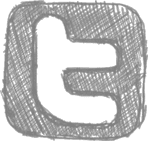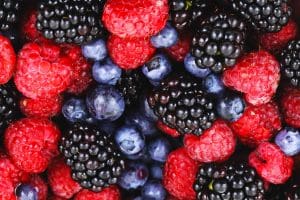So…what is an antioxidant?
Antioxidants are materials that can fend off, tend to or detain certain types of cell damage. Certain are made by the body itself and others need to be obtained exogenously (from the outside) through diet. They are located in numerous types of foods, including fruits and vegetables and are also available as dietary supplements. Antioxidants include:
- Beta-carotene: red, orange and yellow pigments called carotenoids; found in carrots and sweet potatoes
- Lutein: a carotenoid that could help prevent eye disease (e.g., macular degeneration); appears in kale and spinach
- Lycopene: a bright red carotenoid; obtained from watermelons and pink grapefruits
- Selenium: an essential trace element that is nutritionally essential for humans; occurs in Brazil nuts and shiitake mushrooms
- Vitamin A: a fat-soluble vitamin that maintains healthy vision and neurological functions; appears in cantaloupes and apricots
- Vitamin C: known as ascorbic acid, this vitamin helps prevent scurvy and repairs and regenerates tissues; found in oranges and red peppers
- Vitamin E: a fat-soluble vitamin that plays a role in immune function and metabolic processes; obtained from avocados and butternut squash
Vegetables and fruits are rich sources of antioxidants. There is lots of evidence that eating a diet rich in vegetables and fruits is healthy and decreases the risk of certain diseases.
What are free radicals?
Certain types of oxygen molecules travel freely in the body and cause oxidative damage and the development of free radicals. Antioxidants battle free radicals and the harm they generate. Free radicals negatively effect the body, giving rise to accelerated aging, cellular harm and destruction, mutated or altered cells and DNA; they also overburden our immune system.
What do free radicals do to skin?
Skin is always vulnerable to caustic elements–the air, radiation from the sun (UV light), environmental pollutants, and added mechanical or chemical abuse we put our skin through almost daily. Each of these are capable of making free radicals and harming the skin.
Injury to the skin as a result of outside attacks takes place as a consequence of UV radiation, physical and psychological stress, alcohol intake, poor nutrition and environmental pollution. The better part of the damage comes about from UV radiation–nearly 80%! As a result, the best defense is to make use of sunscreen and to steer clear of unnecessary sun exposure. Nutritionally we can lend a hand by gobbling up antioxidants in our food! Applying antioxidants topically has also been considered beneficial–this relieves some of the oxidative stress on our skin cells and can strenghten the repair of our DNA.
What are the benefits of antioxidants?
Antioxidants can diminish the signs of aging and delay the overall process. They also help the skin look healthier and more youthful–even glowing! Antioxidants are touted to minimize the risk of specific types of cancers and to extend a person’s life span. They also appear to protect against heart disease and strokes, in addition to decreasing the threat of cognitive changes that take place with increasing age, i.e., dementia. These free-radical busters may also abate the chance of vision loss or ocular diseases, like macular degeneration.
What foods contain antioxidants?
There are particular foods that contain good amounts of antioxidants. They include: tomatoes, carrots, strawberries, goji berries, pumpkin seeds, blueberries, dark chocolate and sweet potatoes. Additionally, certain herbs and spices are rich in healing antioxidants including cloves, garlic, cayenne pepper, green tea, cloves, cinnamon, oregano, turmeric and cocoa. Of course, this list is in no way comprehensive! There are many more foods and herbs to consider.
Overall, there are plenty of benefits from antioxidants, not just for skin, but for your whole body. They are robust substances–with the ability and potential to stimulate good health and hinder disease. You must remember that you should not use antioxidant supplements to take the place of a healthy diet or established medical care. As always, you should check with your health care provider before starting any diet or exercise program, or if you have any questions or concerns about your health.
*References available upon request.
**Disclaimer:
The information provided is for educational purposes only and does not constitute medical advice. Always seek the advice of your health care practitioner with any questions or concerns about your health. Never disregard or delay seeking medical advice because of something you have heard or read in an article or on the internet.




